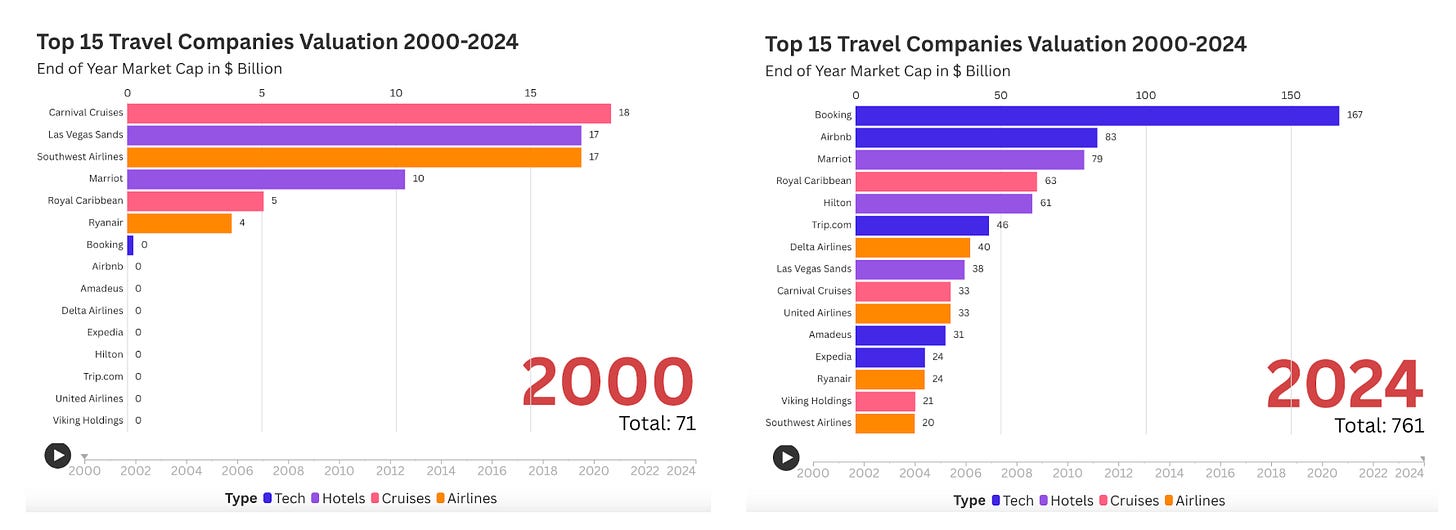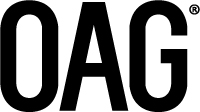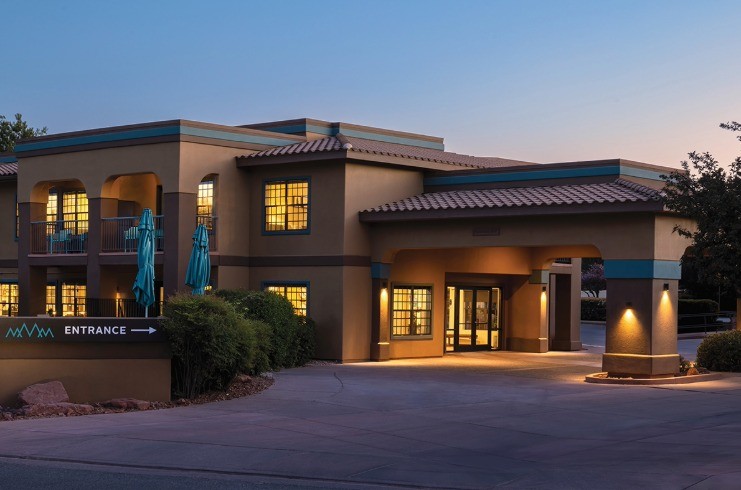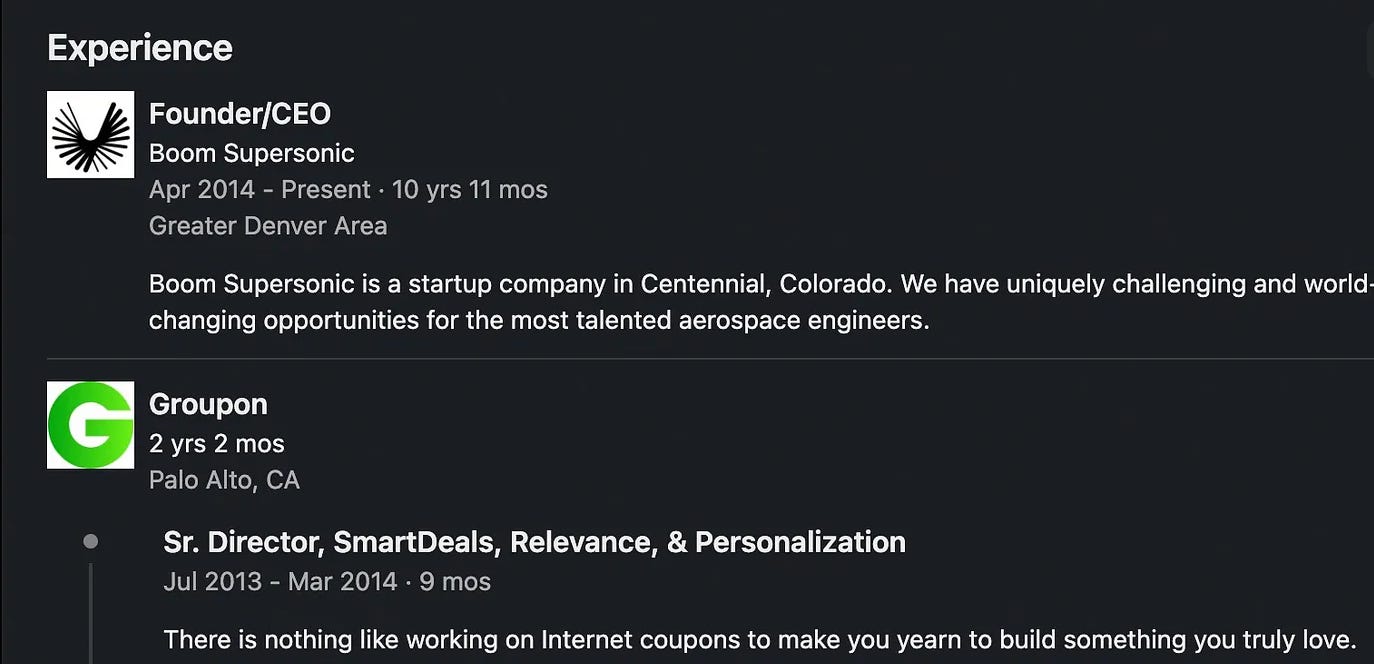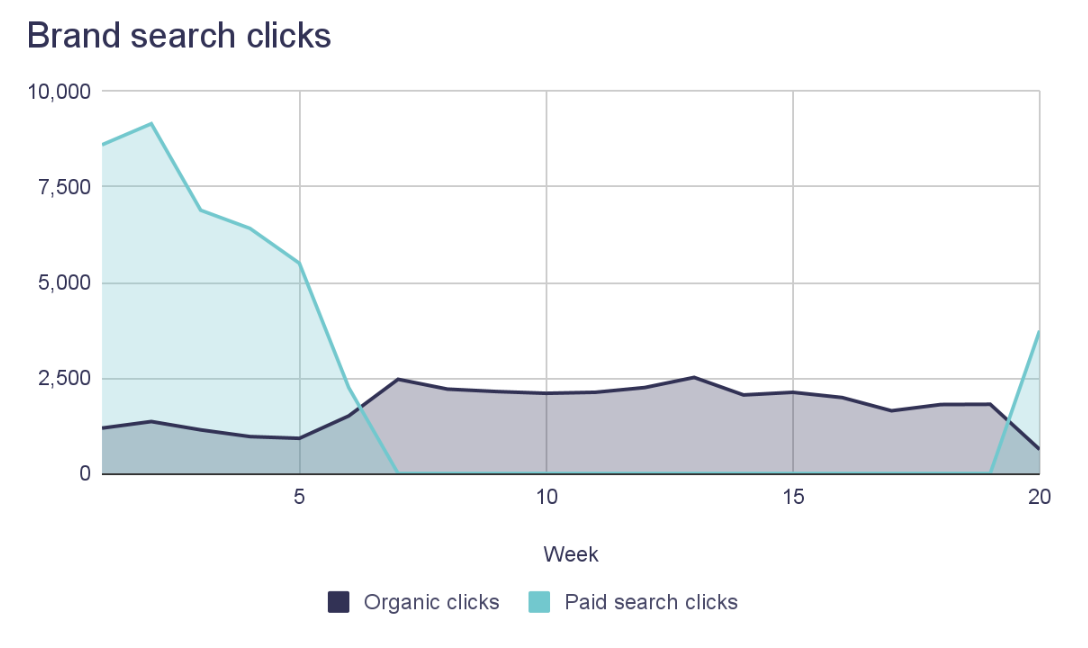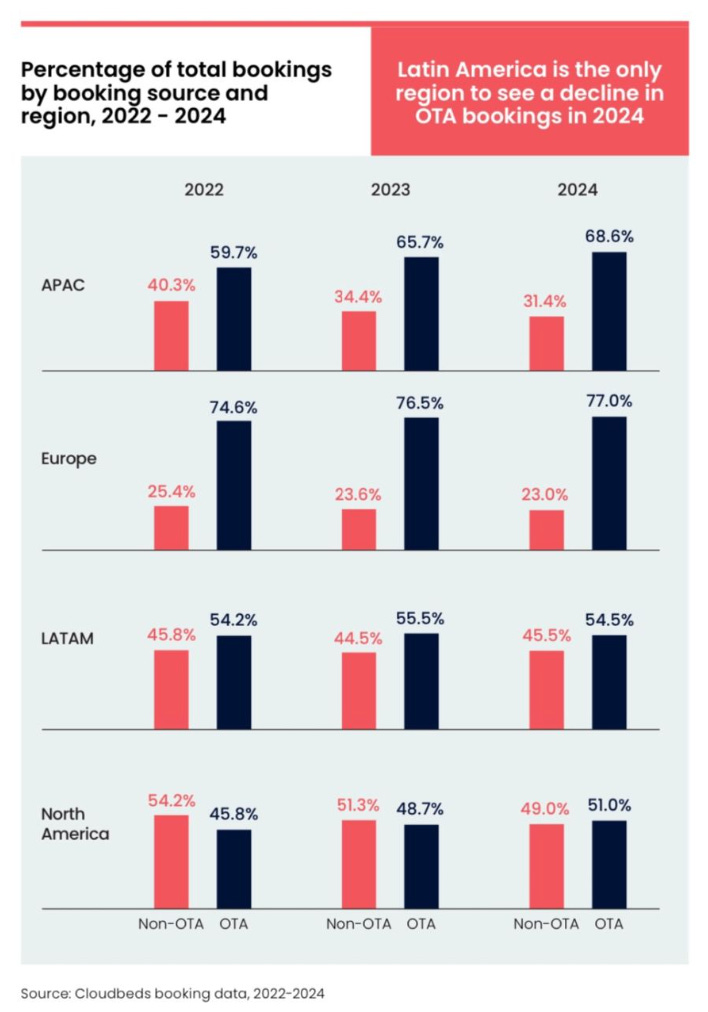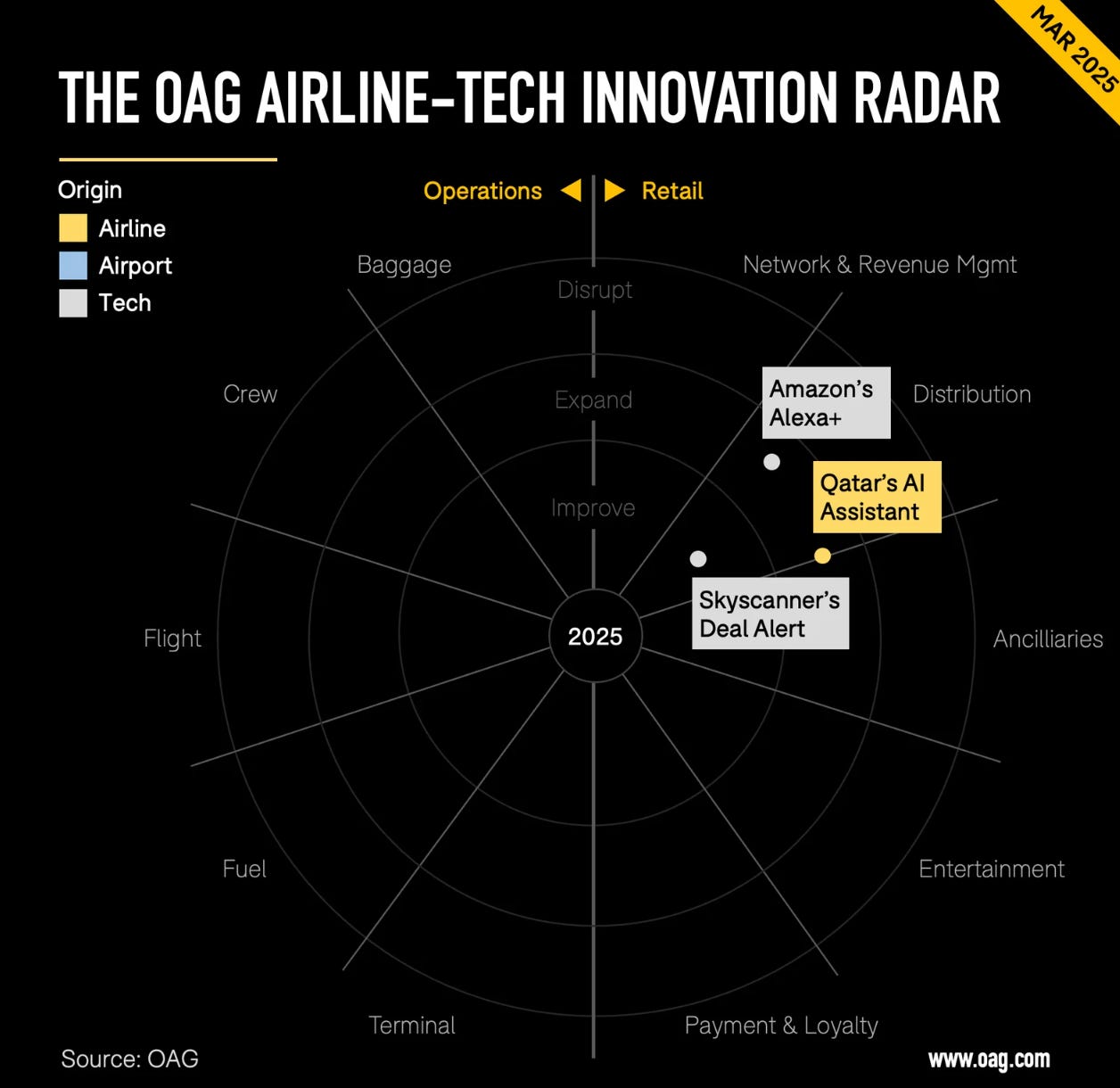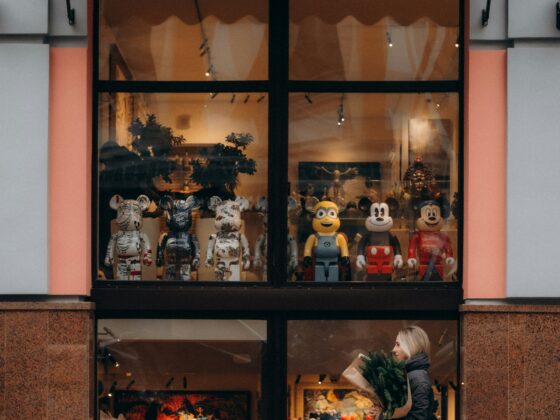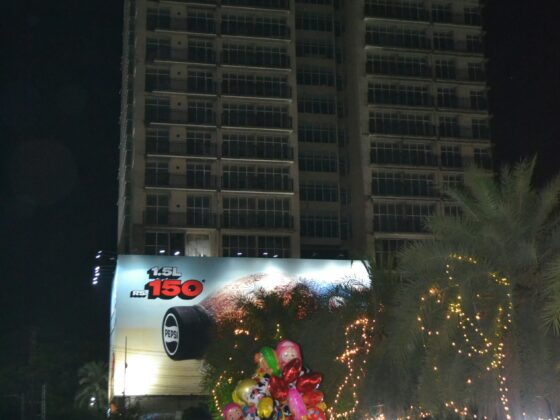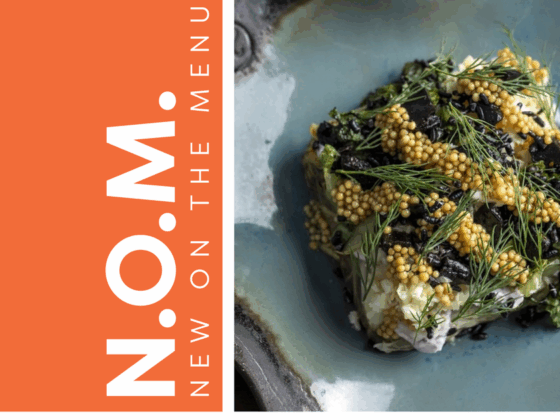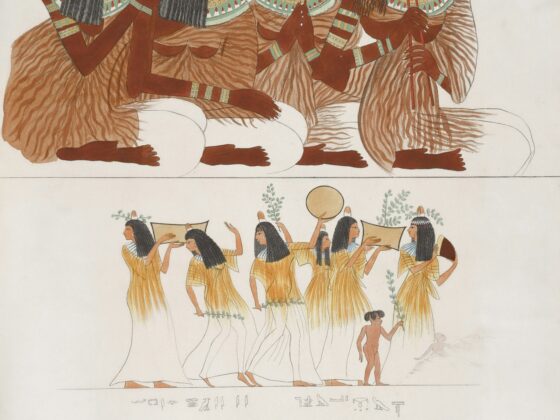Some forces shape industries, and others shape lives. This issue looks at both. From the network effects that shape our lives to the automation reshaping airline operations, from shifting market leaders to AI showing up in the traveler experience, to the quiet pull of cognitive biases, these forces are nudging travel in new directions.
Thanks to OAG for sponsoring this edition of the newsletter:
From chatbots to deal finders, how is tech changing aviation this month? This month’s roundup covers the AI and automation reshaping customer interactions, airline operations, and the traveler experience. The tools are getting smarter, and they’re starting to make a real difference in how travelers search, book, and move Read OAG’s Airline Tech Innovation Radar.
0. Your favorite story in the previous newsletter
The most clicked link in the last issue was Propellic’s AI Strategy Guide, a practical resource for travel marketers adapting to AI-shaped search results.
1. 25 Years of value creation in travel
Mario Gavira (Kiwi.com) dives into 25 years of travel industry shifts through the lens of market capitalization. This guest post includes a sharp timeline visualization of how the leaderboard has changed from 2000 to 2024: who’s created the most value, who’s fallen behind, and how the game keeps evolving. If you’re building in travel or just want to get a clearer picture of where the value is heading, this one’s well worth your time. Read +.
2. Network effects on your life
We all understand how powerful network effects are in business; platforms grow, value compounds and the strongest nodes keep getting stronger. This piece by James Currier (five-time founder, angel investor in DoorDash, Lyft, and Patreon, and Founding Partner at NFX) shows how those same principles apply even more powerfully to our own lives.
He introduces the concept of the network force, the idea that who we’re surrounded by creates compounding effects that shape our decisions, options, and outcomes far more than we realize. And it all comes down to 7 key life crossroads:
-
Family you’re born into: The foundational network. You don’t choose it, but it defines your early worldview and often sets the first constraints.
-
High school you attend: Your first peer network. Status, ambition, and identity start taking shape here, and often stick.
-
College you choose: A dense, closed network that becomes a launching pad for your future location, career, relationships, and mindset.
-
Your first job: seeds your professional network and defines early opportunities. Who you work with matters more than what you work on.
-
Who you marry or partner with: You’re merging networks, and their influence touches everything from where you live to how your kids grow up.
-
Where you live: Geography dictates network proximity, and that proximity massively shapes opportunity flow.
-
When you reassess: Rare moments to consciously break from past networks and make bold directional changes.
Each of these crossroads locks in a network that shapes the trajectory of everything that follows. It’s a compelling framework for thinking not just about startups, but about the architecture of your own life.
Observing our own lives, and watching as 100s of founders move through their own journeys, we would go even further in the belief that it’s network forces that influence the majority of how our lives turn out. And 90% of those network forces are established in just 7 crossroads or pivotal life events. — James Currier
3. Blake Scholl’s master plan to bring supersonic flight to the masses
Boom Supersonic founder Blake Scholl believes faster-than-sound travel is finally ready for prime time. In this a16z interview, he shares how Boom’s XB-1 test jet quietly made history, breaking the sound barrier without the sonic boom reaching the audience on the ground. The breakthrough, called Boomless Cruise, could unlock over-land supersonic routes previously banned by regulators.
Scholl’s personal story is captivating. Burned out (and uninspired) from building barcode apps and online coupons at Groupon, he taught himself aerospace physics and founded Boom from scratch. Now they’ve got airline orders, a production facility, and a next-gen jet (Overture) planned to start flying commercially in 2029.
4. Should you bid on your brand keywords?
It’s one of the oldest questions in paid search, and Equeco published an experiment with travel brand Viajala to get some answers. They paused brand keyword ads for two months to see what would happen. Organic clicks doubled (as expected), but total clicks dropped by 60%. The loss in paid traffic wasn’t made up for by organic gains, and the revenue hit was bigger than the ad savings.
Equeco also shared that their brand campaigns typically deliver a 40% higher ROAS compared to non-brand, reinforcing the idea that even if some clicks would have happened organically, brand ads still drive solid incremental value, especially when competitors are bidding on your name. Read +.
5. The hidden cost of effortless trip planning
A few newsletters ago, in “What’s (not) in a name” I shared examples of digital tools that are the opposite of what they promise. Sahara Rose De Vore (Founder & CEO of The Travel Coach Network) suggested adding one more: Travel planning apps ensure that you won’t know how to plan your trip.
This reminded me of the Ikea Effect, a cognitive bias where people place more value on things they’ve helped create, even if the result isn’t great. It shows up all over: parents overrating their kids, DIY crafts feeling extra meaningful, and people forming surprising attachments to the digital tools they’ve spent time configuring.
The same dynamic shows up in travel planning. The more effort we put into building our own itineraries (spreadsheets, step-by-step Google Map bookmarks, etc…) the more ownership and satisfaction we might feel in the trip. But when an app or AI steps in and auto-generates everything, we lose that effort. And with it, we lose the sense of pride and personal connection that comes from shaping the trip ourselves. These tools remove friction, but they might also remove something more meaningful. Maybe people stick with spreadsheets not because the tech is broken but because they want to feel like they built the trip themselves.
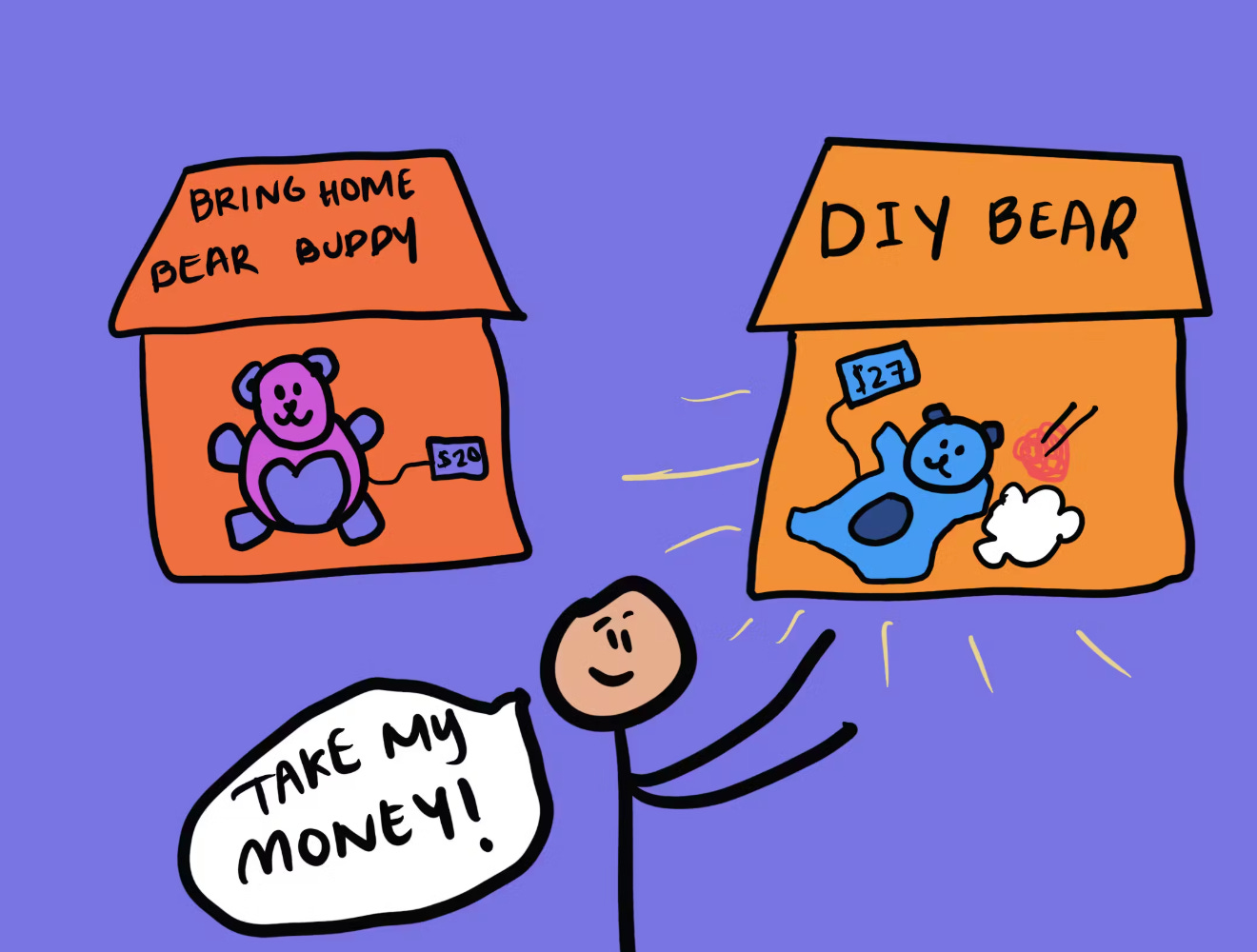
6. Virality is a myth (mostly)
In a conversation in Lenny’s Podcast, Superhuman founder and CEO Rahul Vohra shared what he calls the real secret behind virality: true virality isn’t about clever features, it’s about word of mouth.
After LinkedIn acquired his company, Rahul reported directly to Elliot Schmuckler, the head of growth who scaled LinkedIn from 25 million to over 250 million users. In their first one-on-one, Elliot explained that no product maintains a viral factor over 1 for very long. The viral factor is a metric that measures how many new users one existing user brings in. Facebook, at its peak, hit around 0.7. LinkedIn’s address book import feature, which was known for aggressively encouraging invites, peaked around 0.4. And those are considered great numbers.
Rahul realized that viral mechanics eventually hit a wall and plateau. What actually sustains growth comes down to three things:
-
Word of mouth: Users talking to others without prompt or incentive, just out of genuine excitement.
-
“Whales”: Power users who bring in dozens or hundreds of others. These aren’t the majority, but they move the needle in a big way.
-
Remarkable products: Tools that are so helpful or delightful that people want to talk about them.
Superhuman builds its entire growth approach around those values. Instead of chasing viral features, the team focuses on building something remarkable, because, as Rahul puts it, things grow when people share what they love. “Remarkableness” is even one of their core values. Alongside it are principles like create delight, deliver remarkable quality, and build the extraordinary. Each one is designed to make the product so striking, joyful, or innovative that people feel compelled to tell others about it.
7. OTA reliance for hotels
Max Starkov shared some insights from Cloudbeds’ 2024 global hotel distribution report. In Europe, 77% of hotel online bookings came through OTAs last year, nearly 10% higher than in other regions. Asia Pacific followed with 69% OTA dependence. All regions, except LATAM increased OTA dependency from 2023 to 2024.
Back in 1995, before the internet reshaped hotel distribution, only 25% of room nights came from intermediaries. The ratio of direct to indirect bookings was 4:1. Today, for many independent hotels, that ratio has flipped to 1:3, 1:4, or even 1:5—meaning the vast majority of bookings now come through third parties.
By contrast, major hotel chains still manage to drive 75–80% of their online bookings directly, maintaining a strong 3:1 or 4:1 ratio in favor of direct channels.
8. Airbnb’s big push beyond stays
In May, Airbnb is launching new businesses with $200–$250 million in investment this year, aiming to eventually generate over $1 billion in revenue. They’re relaunching Experiences (food tours, bike rides, tastings…) with a broader focus, not just for travelers but for locals too. It’s a move toward becoming a go-to platform for things to do, wherever and whoever you are.
They’re hiring across product, design, and engineering and investing heavily in marketing to build awareness and supply. The headcount is set to grow by 10%. A big part of that marketing push is focused on helping Airbnb compete with players like Viator and GetYourGuide. Morningstar’s Dan Wasiolek expects Airbnb could hit $10 billion in bookings from experiences by the end of the decade. Read + WSJ.
9. AI in action in airline tech
OAG’s latest Airline-Tech Innovation Radar rounds up three standout developments in aviation tech this month, each showing how AI and smart automation are no longer future buzzwords but part of the traveler experience right now. Qatar Airways is using emotionally aware AI to suggest destinations and meals. Amazon just dropped Alexa+, an AI-powered assistant that could change how we book travel. Skyscanner’s new DROPS feature tracks flight prices, flags drops of over 20%, and sends daily alerts so travelers don’t have to keep checking.
10. Airline CEO vs. the chatbot that can’t rebook
This fictional short story by Daniel Stecher is for anyone who’s ever asked a chatbot for help and gotten nowhere. It imagines what happens when an airline CEO tries to rebook his own canceled flight using the very chatbot he once approved. It’s funny, a bit painful, and a solid reminder that automation often breaks down in the exact moments when people need it the most. Airline Tech is moving fast, but reliability still matters 🙂
Travel Tech Essentialist Job Board
→ Explore all 1,095 open travel tech roles on the Travel Tech Essentialist Job Board now.
-
Oliver’s Travels | People & Culture Manager | London
-
TravelPerk | Director of Marketing – US | Chicago; Boston | $153k – $195k + equity
-
Airalo | Growth Strategy and Planning Manager | Toronto
-
Fora | AI Engineer | New York | $150k – $200k
💼 Employers: List your job openings here by completing this quick form
📩 For monthly updates on the latest roles, subscribe to the Travel Tech Jobs newsletter
Raising a round?
If you are a startup looking to raise a round (from pre-seed to Series D), I can help (for free). Travel Investor Network is a private platform where I recommend innovative travel startups to investors and innovators. If you’re interested, please start by completing this form.
If you like Travel Tech Essentialist, please consider sharing it with your friends or colleagues. If you’re not yet subscribed, join us here:
And, as always, thanks for trusting me with your inbox.
Mauricio Prieto
